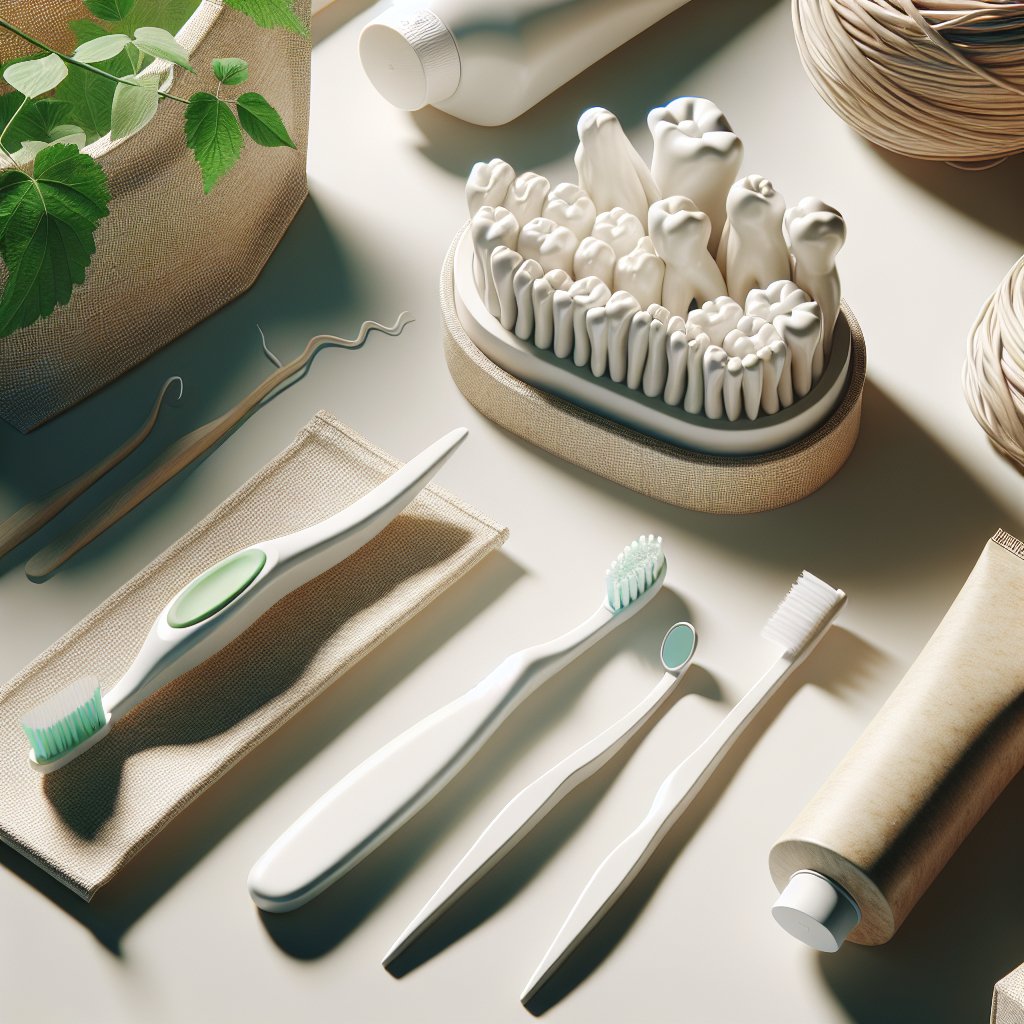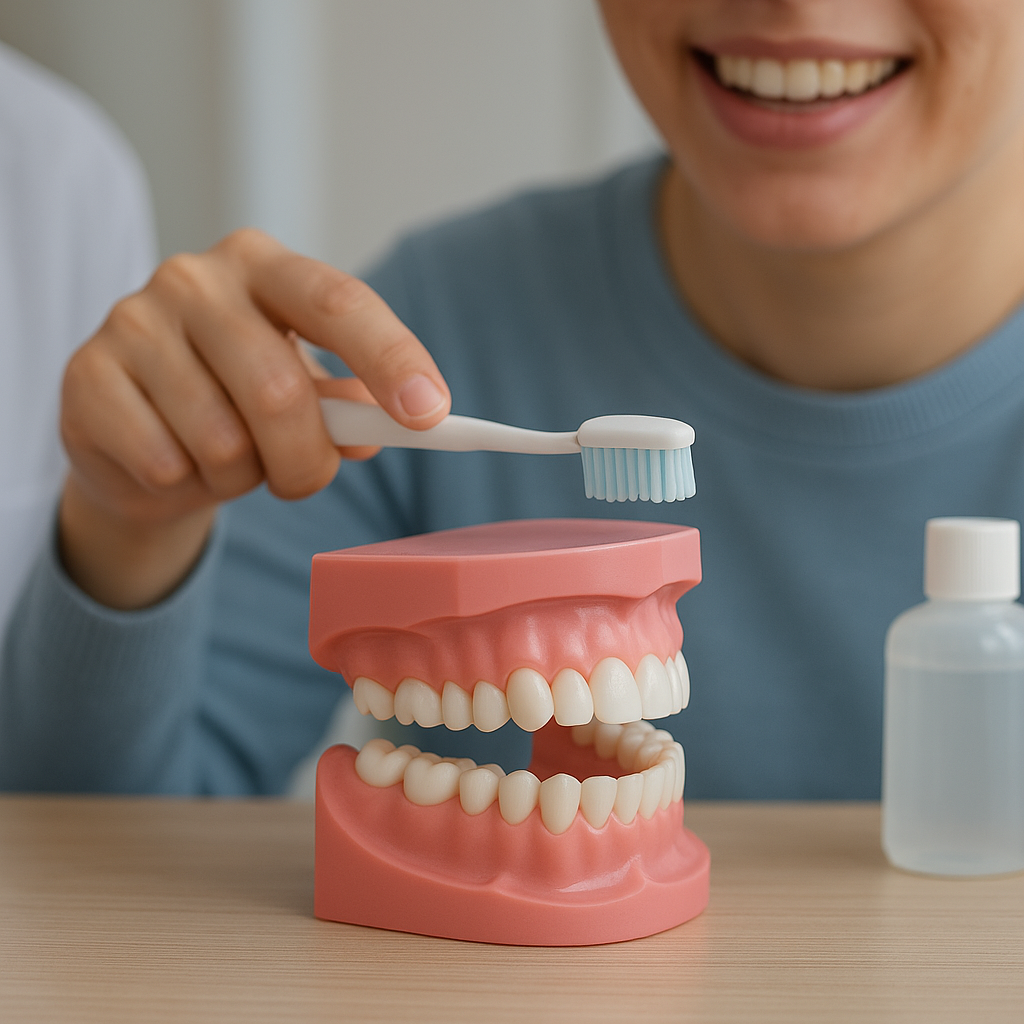The integration of biodegradable materials into dental care products is revolutionizing the way we approach oral hygiene. As environmental concerns continue to rise, the dental industry is responding by adopting sustainable practices that not only benefit patients but also the planet. This article explores the impact of biodegradable materials on dental care products, examining their benefits, challenges, and future potential.
Understanding Biodegradable Materials in Dentistry
Biodegradable materials are substances that can be broken down by natural processes, typically through the action of microorganisms. In the context of dental care, these materials are being utilized in various products, including toothbrushes, dental floss, and even toothpaste packaging. The shift towards biodegradable options is driven by the need to reduce plastic waste, which has become a significant environmental issue.
The Benefits of Biodegradable Dental Products
There are several advantages to using biodegradable materials in dental care products:
- Environmental Impact: Traditional dental products often contain plastics that can take hundreds of years to decompose. Biodegradable materials, on the other hand, break down more quickly, reducing the amount of waste that ends up in landfills and oceans.
- Health and Safety: Many biodegradable materials are made from natural substances, which can be safer for consumers. For instance, some biodegradable toothbrushes are made from bamboo, a renewable resource that is free from harmful chemicals.
- Consumer Demand: As awareness of environmental issues grows, consumers are increasingly seeking out sustainable products. Dental care brands that offer biodegradable options can attract eco-conscious customers and differentiate themselves in a competitive market.
- Innovation and Research: The push for biodegradable materials has spurred innovation within the dental industry. Researchers are exploring new materials and technologies that can enhance the effectiveness of dental products while remaining environmentally friendly.
Types of Biodegradable Materials Used in Dental Care
Several types of biodegradable materials are currently being used in dental care products:
- Bamboo: Bamboo is a popular choice for toothbrushes due to its rapid growth and natural antibacterial properties. Bamboo toothbrushes are not only biodegradable but also often come with plant-based bristles.
- PLA (Polylactic Acid): PLA is a biodegradable plastic derived from renewable resources like corn starch. It is commonly used in dental floss containers and some types of toothbrushes.
- Natural Fibers: Some dental floss products are made from natural fibers such as silk or cotton, which are biodegradable and compostable.
- Recycled Materials: While not strictly biodegradable, some companies are using recycled materials to create dental products, reducing the demand for new plastic production.
Challenges in Implementing Biodegradable Materials
Despite the numerous benefits, there are challenges associated with the widespread adoption of biodegradable materials in dental care products:
Cost and Accessibility
One of the primary challenges is the cost of biodegradable materials. Often, these materials are more expensive to produce than traditional plastics, which can lead to higher retail prices for consumers. This can make it difficult for some brands to compete in a price-sensitive market. Additionally, the availability of biodegradable materials can vary by region, limiting access for some manufacturers.
Consumer Awareness and Education
Another challenge is the need for consumer education. Many people are still unaware of the environmental impact of traditional dental products and the benefits of switching to biodegradable alternatives. Dental care brands must invest in marketing and educational campaigns to inform consumers about the importance of sustainability in oral hygiene.
Performance and Efficacy
There is also the concern regarding the performance of biodegradable materials. Some consumers may be hesitant to switch from traditional products if they perceive that biodegradable options do not perform as well. Manufacturers must ensure that their products meet or exceed the performance of conventional dental care items to gain consumer trust.
The Future of Biodegradable Dental Care Products
The future of biodegradable materials in dental care looks promising as more companies recognize the importance of sustainability. Innovations in material science are likely to lead to the development of new biodegradable options that are both effective and affordable.
Regulatory Support and Industry Standards
As the demand for sustainable products grows, regulatory bodies may begin to establish standards for biodegradable materials in dental care. This could help ensure that products labeled as biodegradable meet specific criteria, providing consumers with confidence in their purchases.
Collaboration and Partnerships
Collaboration between dental care brands, material scientists, and environmental organizations can drive innovation and promote the use of biodegradable materials. By working together, stakeholders can share knowledge, resources, and best practices to create effective and sustainable dental care products.
Consumer Engagement and Advocacy
Engaging consumers in the conversation about sustainability can also play a crucial role in the future of biodegradable dental care products. Brands that actively involve their customers in sustainability initiatives, such as recycling programs or educational campaigns, can foster loyalty and encourage more people to make eco-friendly choices.
Conclusion
The shift towards biodegradable materials in dental care products represents a significant step forward in promoting sustainability within the industry. While challenges remain, the benefits of these materials are clear, and the potential for innovation is vast. As consumers become more aware of their environmental impact, the demand for biodegradable dental products is likely to continue to grow, paving the way for a more sustainable future in oral hygiene.




